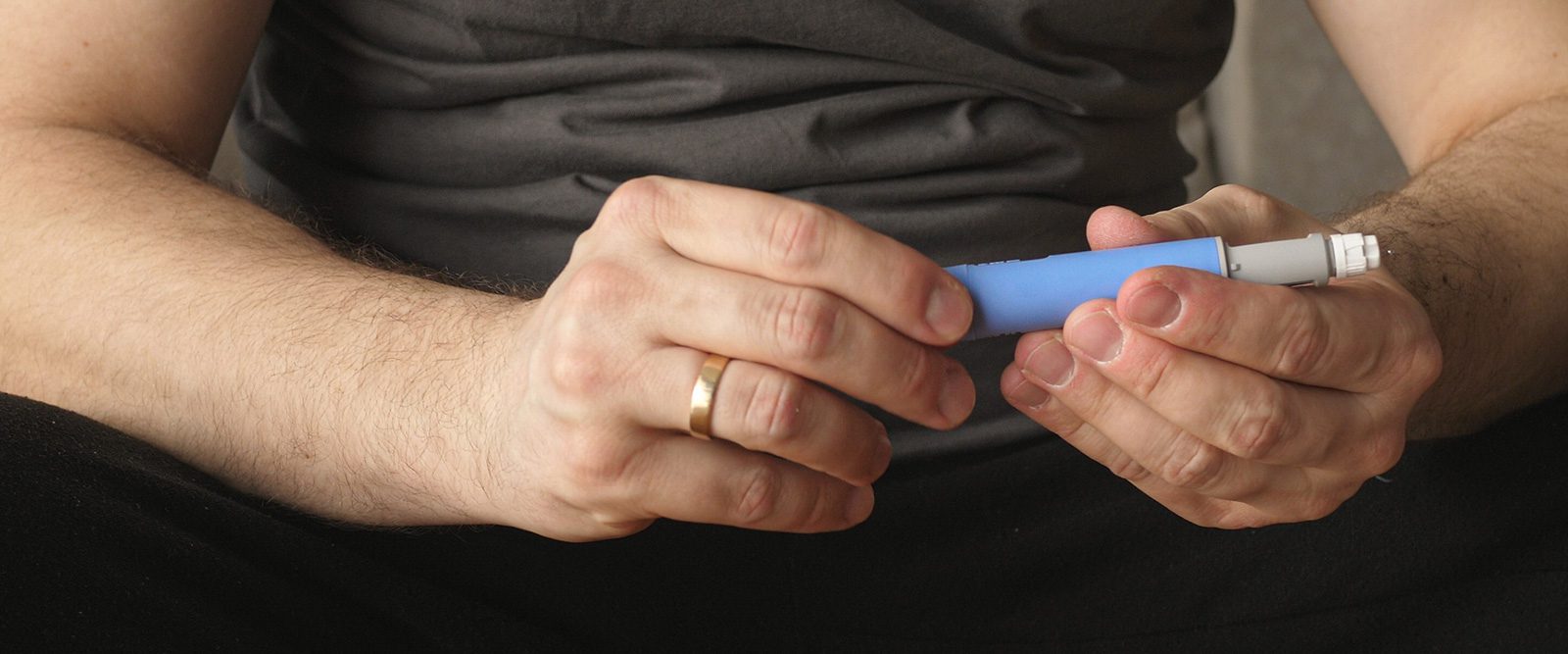Understanding Ozempic, Wegovy, and Weight Loss Medications
As the buzz about weight loss drugs continues to rise, an obesity expert explains how the medications work and who should be taking them.


Injectable weight loss medications designed for diabetic and medically overweight patients are garnering national attention as a breakthrough for helping people lose weight. Celebrities who have talked about using the medications, viral TikTok videos, and rising media frenzy are popularizing the drugs Ozempic and Wegovy. And now, a new trial from the makers of Wegovy showed that the drug reduced the risk of heart attacks, strokes, or cardiovascular death by 20%. The trial tracked 17,500 people with a history of heart disease for up to five years.

Dr. Mohini Aras
“The Wegovy data is very exciting news,” says Dr. Mohini Aras, an obesity medicine specialist at NewYork-Presbyterian/Weill Cornell Medical Center. “We want people to treat obesity as a chronic medical condition that requires medical management.”
Dr. Aras spoke with Health Matters about how drugs like Ozempic and Wegovy work, who should (and shouldn’t) take them, and their risks and side effects.
How do weight loss drugs work?
Dr. Aras: First, it’s important to understand that our brain is designed to defend against starvation and retain our weight. When we lose weight, naturally occurring hormones send a message to our brain to increase hunger and cravings and slow our metabolism down. Our brain even makes our muscles more efficient, so we don’t burn as many calories with the same activity; this is a starvation response. As a result, people tend to yo-yo: They will lose, regain, lose, and regain weight.
Weight loss medications activate the hormones that we naturally produce to regulate weight. There are five different weight loss drugs now approved by the FDA for the long-term treatment of obesity. These medications target appetite and hunger, helping people feel full sooner and stay full longer. They may also impact cravings, thoughts of food, and binge eating.
Who are they recommended for?
Ozempic and Wegovy contain the same active ingredient, semaglutide, and are approved by the FDA to treat obesity and diabetes.
Ozempic is approved by the FDA for the treatment of type 2 diabetes. Wegovy is approved by the FDA for people with a body mass index of 30 or above or people with a BMI of 27 or above who also have a weight-related medical condition.
The purpose of these medications is not to just drop down a clothing size.
Weight affects so many chronic medical conditions, including diabetes, high blood pressure, cholesterol, fatty liver, and certain cancers — as well as issues like sleep apnea and osteoarthritis. Our goal with weight loss is to improve these conditions, and even a modest weight loss of 5% to 10% can make a difference.
How are these medicines taken?
Ozempic and Wegovy are once-weekly injectable medications. They come as a pen, and you do the injection yourself at home. It’s a subcutaneous injection, so you can do it in your upper thigh, in your abdomen, or in your arm, and it’s a tiny needle that is just enough to poke the skin — so it’s not too bothersome for people.
The oral version, taken once a day, will further open up options for people and allow for individual preferences. Also, the pills are easier to transport, as opposed to the injectables, which have specific temperature requirements.
How can you get a prescription?
We require a comprehensive medical evaluation, including labs, vitals, and a full medical history. We tailor individual plans for patients, with the foundation being diet and physical activity, and select appropriate weight loss medications that can help support the hard work that they are doing. We also have a team of providers, including registered dieticians, nurse practitioners, and physicians, who aid patients in achieving their health goals.
We don’t prescribe Ozempic or Wegovy to patients who have histories of gallbladder disease, pancreatitis, or family histories of medullary thyroid cancer or rare disorders of the endocrine system.
How much do they cost?
These medicines are quite expensive if they’re not covered by insurance — from $900 to $1,400 a month. We have an entire pharmacy team dedicated to processing the authorizations required by insurances to try to obtain these medications for our patients.
Obesity is chronic, so when we start a medication, we have to plan for it long-term. Given the cost of being on these medications, most of my patients wouldn’t be able to afford these drugs without insurance coverage. Medicare and Medicaid do not cover anti-obesity medicines.
What about the new weight loss drugs being developed?
The first anti-obesity medicines were stimulants that were approved in the late 1950s, and we’ve seen a lot of advances in the field of obesity medicine in the last 10 years.
On the near horizon as an anti-obesity medication is Mounjaro, which is currently FDA-approved for the treatment of type 2 diabetes. Mounjaro (tirzepatide) could lead to even more weight loss than Ozempic or Wegovy because it activates two gut hormones instead of one.
Both Ozempic and Wegovy may also soon be available in the form of a daily pill, and two recent studies showed that the oral versions are about as effective as the injectables. Taken once a day, they will further open up options for people and allow for individual preferences. Also, the pills are easier to transport, as opposed to the injectables, which have specific temperature requirements.
Recently, another study was published about a drug called retatrutide. It activates three gut hormones, and according to the study, it helped patients with obesity lose an average of 24% of their body weight over 48 weeks.
“Weight-loss medications target appetite and hunger, helping people feel full sooner and stay full longer. They may also impact cravings, thoughts of food, and binge eating.”— Dr. Mohini Aras
Do Ozempic and Wegovy also help with alcohol addiction?
Ozempic and Wegovy improve satiety and reduce cravings. Clinically, many patients do report a reduction in their interest in alcohol — and that’s a type of craving. It’s important to remember that these medicines work while you take them, so the benefit of reduced cravings won’t persist once the medicine is no longer circulating in your body. Also, the medicines are only approved for diabetes or obesity and overweight.
How long do patients have to remain on the medication?
Obesity and type 2 diabetes are chronic medical conditions that require long-term management. I tell my patients to plan for long-term use, which is why cost is important to discuss up front.
What are the side effects of taking drugs like Ozempic?
These drugs directly act on the gastrointestinal system. One of the ways they work is by slowing the gastric emptying, so the food sits in your stomach longer before it goes into your intestines. That’s how it can make people feel full sooner and stay full longer, but that’s where the side effects come in as well — because food’s sitting there, it can cause some reflux, nausea, a sense of overfullness, diarrhea, or constipation.
The injectable medicines are most potent the first few days after the injection, and that’s when the side effects can be most prominent. In general, we start with the lowest dose and gradually escalate as needed; we always want to use the least amount of medicine possible to facilitate weight loss.
I’ve seen a common misconception that the side effects of Ozempic are horrible, but, for the most part, that’s not been my clinical experience. The gastric slowing is something that is known about this class of medications and contributes to the gastrointestinal side effects, but for the vast majority of people, they are able to tolerate the medications well. It’s important to reduce portions and eat slowly to mitigate side effects.
Our practice at the Comprehensive Weight Control Center has used these medicines for a long time; we have a lot of tips and tricks that make them more tolerable for patients who are sensitive to the side effects.
People have complained of experiencing “Ozempic face” when taking the drug. What is it, and why does it occur?
When we lose weight, we can’t target where we lose that weight. Sometimes that’s in the face, and it might be more noticeable to the patient.
Likewise, when we lose weight, we lose both fat and muscle. That’s why it’s important to increase protein intake and do resistance training in order to hold onto the muscle mass as much as possible on these medicines.
What would you say to patients who are interested in these drugs but may be feeling ashamed to ask about them?
Physicians have failed people who struggle with weight for decades. We have told them to eat less and exercise more, and now we know that’s not sufficient for the vast majority of people. Obesity is a chronic disease with several root causes that requires medical management. I would encourage patients to seek more information to understand if they would be good candidates for these medications.

